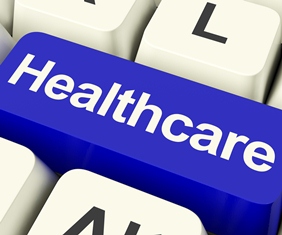Health Blog
A View Into Patients' Perspectives On Online Access To Healthcare

Survey distributed to gauge the feelings of patients towards digitizing healthcare
As we plow further into the 21st century, one trend that will continue to grow rapidly is the open accessibility to most facets of life due to it being available online. This ease of access can be utilized in everything from online banking to car insurance policies, but one department that's hasn't yet fully tapped into its potential is in the healthcare sector. Though services such as access to personal medical records, prescription refill requests and appointment reminders are already available at certain practices, they are yet to become widely available and many patients aren't even aware they exist. To attempt to develop an understanding of how the general population feels about these online services and to what extent they should exist, a company called Accenture administered a survey to 1,100 US patients.
Most patients highly interested in online access, but still want face time with physicians
As most would expect, a resounding majority of those surveyed (90%) were interested in more accessibility to healthcare through the internet, which the survey referred to as eHealth. Additional statistics revealed that 83% wanted access to personal medical information, 72% wanted to book, change or cancel medical appointments, and 72% wanted to request prescription refills through online services. Despite these favorable sentiments towards eHealth, 85% of respondents still wanted the option of seeing their doctor in person. Finally, only 54% of participants were aware if any of these services were already available to them.
Physicians should increase online accessibility and educate patients on its availability
Above all else, these results point out an overwhelming desire of patients to have online access to most of the important services provided by physicians and other healthcare members. Transitioning to a more internet-based, self-service system will significantly lower healthcare costs, improve overall efficiency and put more power in the hand of the patient to play a bigger part in managing their own health care. Physicians and other health-care professionals should see this rampant desire, coupled with the statistic that many are unaware if such services already exist, as incentive to shift their own practice's format to have a greater online and self-service presence. For those that have already begun to make that transition, it's also important to educate and direct patients towards it. Finally, though a gradual movement into a more eHealth-based paradigm will certainly have countless benefits, the face time and human contact of seeing a physician should not be undervalued or neglected by this change. Instead, physicians should utilize that time wisely and work to ensure that patients are getting something from it that they wouldn't be able to from the internet. Implementing changes such as these can have a serious impact on the healthcare industry and ease many aspects of the patient/physician relationship for both parties in the future.
-As reported in the June '12 edition of Accenture
December 6, 2012
Back to Health BlogHEALTH BLOG
- A Personalized Physical Therapy Program Can Assist with Whiplash
- Why Older Adults Should Incorporate an Exercise Program
- After an Achilles Injury, Physical Therapists Can Help with Recovery
- AI Can Answer Questions But It’s Best to See a Physical Therapist
- Physical Therapy Can Help With Symptoms of Wryneck
- Reduce the Risk of Pickleball Fractures By Taking Proper Precautions
- Physical Activity May Slow the Progression of Parkinson's Disease
- Too Much Salt in Your Diet? Learn the Dangers of High Sodium Intake
- Suffer From Lower Back Pain? Might Be Time to Take A Break
- The Road to Recovery: Preventing Re-Injury After ACL Surgery
RECENT ARTICLES

- 11 Possible Reasons Your Back HurtsJune 22, 2020

- What Conditions Can a Chiropractor Treat?May 25, 2020

- A Simple Guide to Better PostureApril 30, 2020

- Is Acupuncture Right for Me When I’m Afraid of Needles?March 30, 2020

- Stretching Done Right — How and When to StretchFebruary 26, 2020

